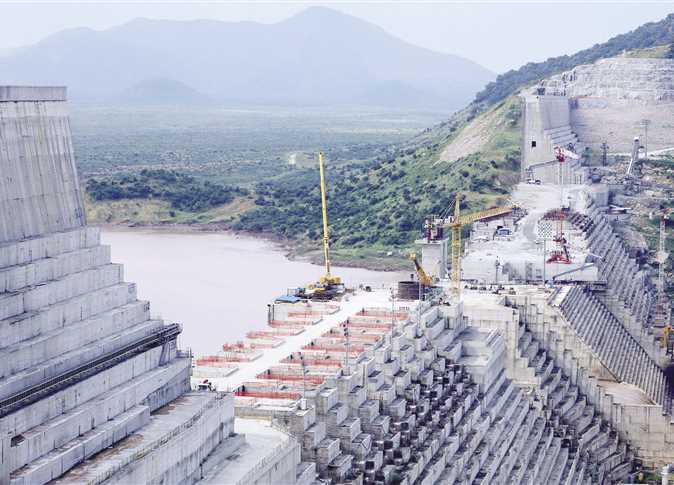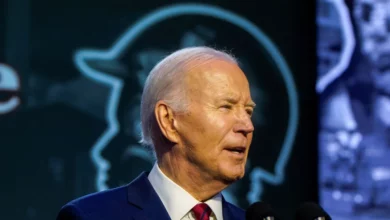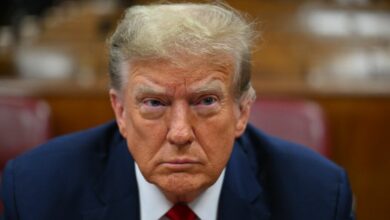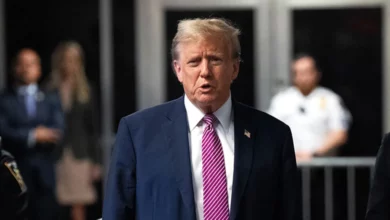
Ethiopia’s Foreign Minister Gedu Andargachew rejected Egypt’s warning to Ethiopia not to begin filling the contentious Grand Ethiopian Renaissance Dam (GERD) under any circumstances, with the Ethiopian side saying the move from Cairo was “not in anyone’s interest” and would “only destroy relations.”
Andargachew commented during a joint press conference with the Ethiopian Minister of Water, Irrigation and Energy Seleshi Bekele on Tuesday that his country was building the Renaissance Dam because it had the “full right” to do so, adding that Addis Ababa remained committed to protecting the interests of the downstream countries.
“We will continue to negotiate the Renaissance Dam unless it harms our national interests,” he said.
Egypt took part in the latest meeting over the Grand Ethiopian Renaissance Dam (GERD) in Washington on February 27 and 28, despite an earlier announcement from Ethiopia that representatives from Addis Ababa would not attend. The February meeting produced a final agreement regarding the GERD, but only Egypt has signed the agreement so far, later warning Addis Ababa against filling the new renaissance dam before an agreement is signed by all sides.
Egypt relies on fresh water from the Nile and has voiced concerns that the GERD would negatively impact the country’s water supply, especially in light of overpopulation fears, and has thus insisted throughout negotiations that measures be put in place to protect downstream countries in case of drought during the filling process at the dam.
Although Andargachew reiterated during the press conference that negotiations are the only solution to reaching an agreement, he also argued that his country had the full right to lift its citizens out of poverty by using its natural resources, adding that “although Ethiopia built the dam from this point of view, it entered into talks to enhance confidence with the downstream countries (Egypt and Sudan).”
Ethiopia has continuously stressed the importance of the Renaissance Dam, construction of which began in 2011, to bolstering the economy in the country, where more than half of the population currently lives without access to electricity.
The minister also questioned the role of the US and the World Bank in the negotiation process during the conference, pointing out that their role must be clear, specific and limited to oversight only.
Ethiopia has rejected the US Treasury Department’s statement about holding off on filling the Renaissance Dam, according to Andargachew, who added that the construction of the dam is on Ethiopian soil and under its sovereignty, warning against what he described as “interference” from the US or other outside powers.
“We will not accept that the US asks us to do something that we do not want to do and to put pressure on us for the interest of others,” he warned, claiming that the US and the World Bank were interested in drafting an agreement that would go beyond their designated role as observers to negotiations.
In the same context, President Abdel Fattah al-Sisi received, on Tuesday, a phone call from US President Donald Trump, during which they exchanged views on the latest developments related to the Renaissance Dam.
During the call, Trump stressed the US administration’s continued efforts to coordinate with Egypt, Sudan and Ethiopia on the crisis until the three countries reach an agreement, the Egyptian presidency spokesperson said in a statement.
Sisi expressed his deep appreciation for the role of the Trump administration in sponsoring the tripartite negotiations, stressing that the GERD crisis was of the utmost importance to Egypt.
The Egyptian Ministries of Foreign Affairs and Water Resources, on March 1, expressed deep dissatisfaction and rejection of a joint statement issued by the Ethiopian Ministries of Foreign Affairs and Water regarding the latest round of negotiations in Washington.
Ethiopia had requested the postponement of the meeting, saying it needed more time for consultations. Egypt, meanwhile, said that Ethiopia was deliberately absent from the meeting to block negotiations from moving forward.
The Egyptian Ministries of Foreign Affairs and Water Resources said that intensive negotiations over five years should have been sufficient for Ethiopia to study and address all matters of the GERD in detail.
The Ministries also claimed that the Ethiopian statement was inaccurate, “twisted facts,” and even included a clear disavowal of Ethiopia’s obligations under the rules of international law, as well as the provisions of the 2015 Declaration of Principles agreement.
Moreover, Egypt’s Ministries of Foreign Affairs and Water Resources rejected Ethiopia’s plan to fill the reservoir of the Renaissance Dam in parallel with construction work on the dam, regardless of whether an agreement has been reached with the downstream countries.
The Declaration of Principles agreement was concluded on March 23, 2015, and stipulated in Article five the need for Ethiopia to agree with the downstream countries on the rules for filling and operating the dam before it began filling the reservoir, the statement added.
The Foreign and Water Resources Ministries reiterated that the “fair and balanced agreement” from the US and the World Bank was built on terms that Ethiopia had agreed upon in earlier meetings.
Egypt’s Foreign Minister Sameh Shoukry told Al Arabiya Al Hadath channel, on Saturday evening, that Ethiopia had notified participants in the Washington February meeting too late, calling Ethiopia’s absence from the latest round of talks a “clear indication” that the country aimed to hinder the signing of a final agreement.
“Ethiopia can not in any way start filling (the reservoir) without an agreement,” he warned.
Edited translation from Al-Masry Al-Youm




